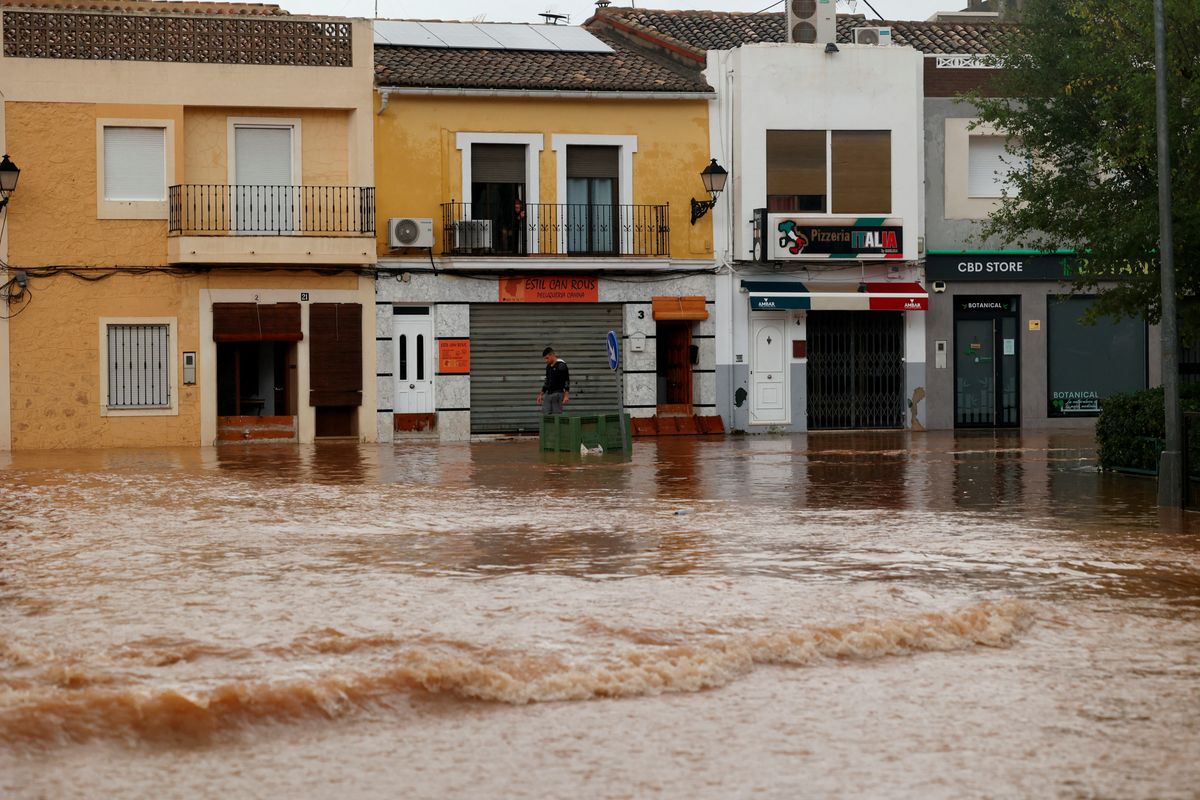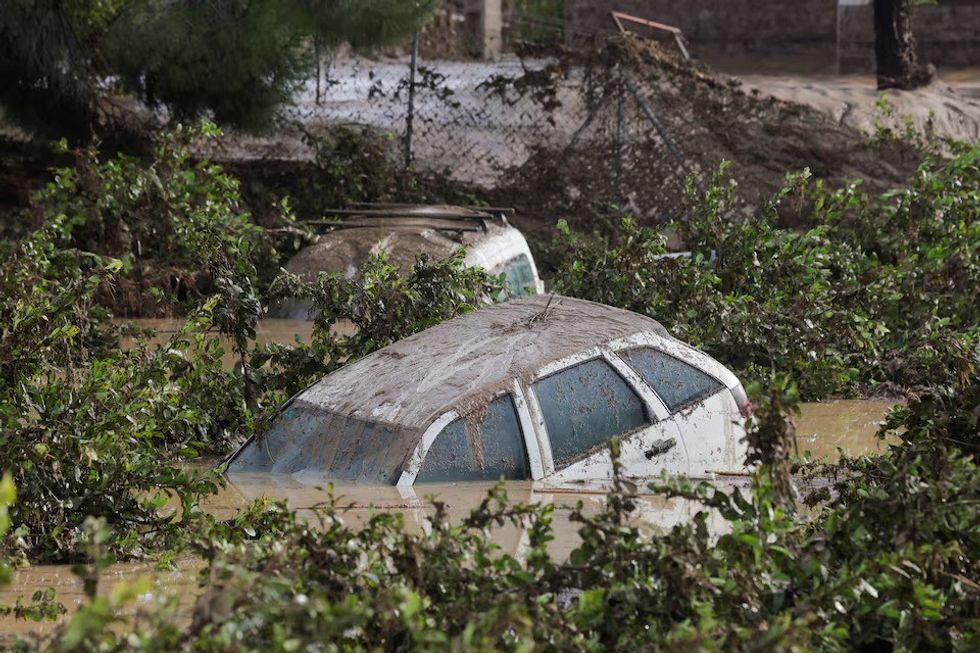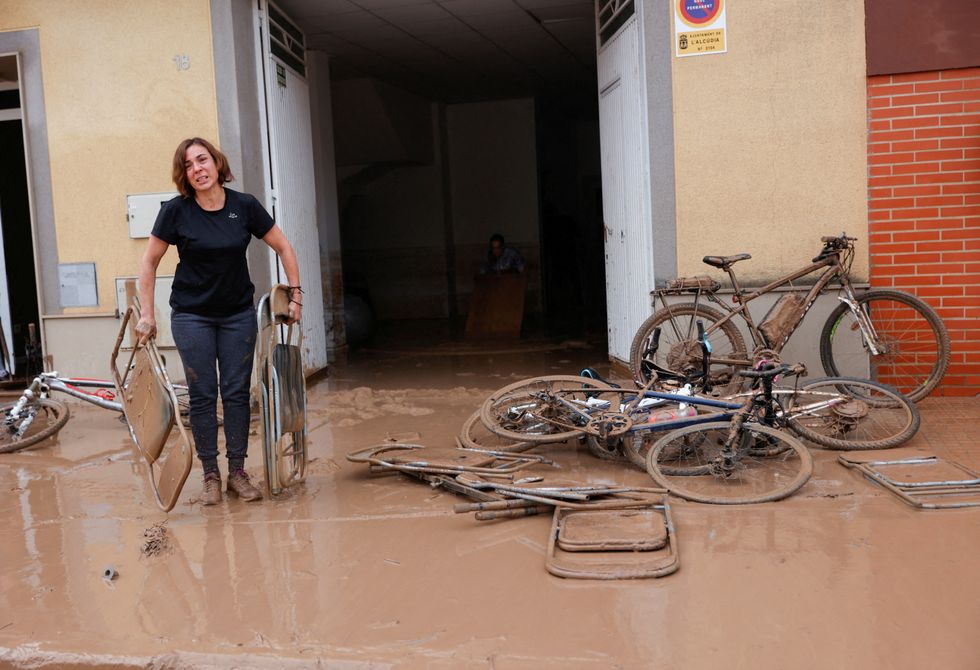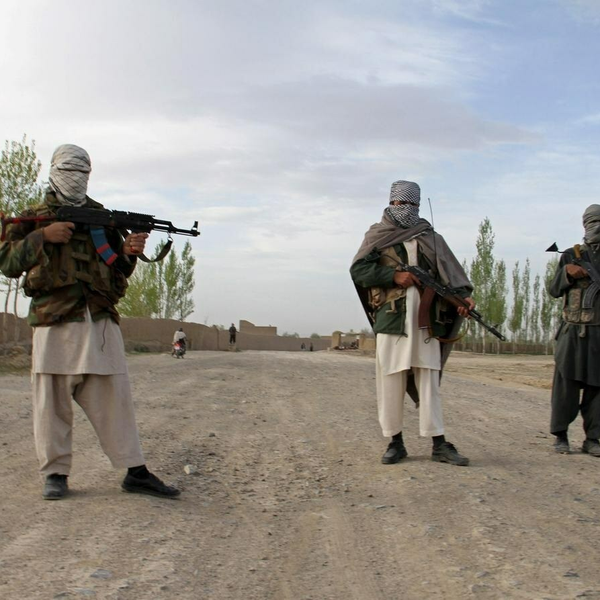Spanish floods kill 95 as year of rain falls in a day in Valencia
Meteorologists said a year's worth of rain had fallen in 8 hours in parts of Valencia
Reuters
News Agency Partner
Reuters is a leading source of news and information, delivering fact-based reporting and expert analysis on international events and trends.

A person walks in a flooded street after the Spanish meteorological agency put the Valencia region in the highest red alert for extreme rainfalls, in Llombai, Valencia, Spain, October 29, 2024.
Reuters
Europe's deadliest floods since 2021, could be Spain's worst
Death toll could still rise with more searches on Thursday
Roads closed, rail services halted
Storm also batters other regions
Farms battered in Valencia, a key orange producer
Meteorologists attribute severe rains to climate change
At least 95 people have been killed in possibly the deadliest flooding to hit Spain in its modern history after torrential rain battered the eastern region of Valencia, sweeping away bridges and buildings, local authorities said on Wednesday.
Meteorologists said a year's worth of rain had fallen in eight hours in parts of Valencia on Tuesday, causing pile-ups on highways and submerging farmland in a region that produces two-thirds of the citrus fruit grown in Spain, a leading global exporter.
Residents in the worst-hit places described seeing people clambering onto the roofs of their cars as a churning tide of brown water gushed through the streets, uprooting trees and dragging away chunks of masonry from buildings.
"It's a river that came through," said Denis Hlavaty, who waited for rescue on a ledge in the petrol station where he works in the regional capital. "The doors were torn away and I spent the night there, surrounded by water that was 2 metres (6.5-feet) deep."

'Victims likely to increase'
Defense Minister Margarita Robles told Cadena Ser radio station that a military unit specialized in rescue operations would on Thursday start combing through the mud and debris with sniffer dogs in the worst-hit areas.
Asked if the number of victims was likely to increase, she said: "Unfortunately we are not optimistic". The teams have brought with them 50 mobile morgues.
Prime Minister Pedro Sanchez promised to rebuild infrastructure that has been destroyed and said in a televised address: "For those who at this moment are still looking for their loved ones, the whole of Spain weeps with you."

Vehicles pile on top of each other
Footage shot by emergency services from a helicopter showed bridges that had collapsed and cars and trucks piled on top of each other on highways between flooded fields outside the city of Valencia.
Trains to the cities of Madrid and Barcelona were cancelled due to the flooding, and schools and other essential services were suspended in the worst-hit areas, officials said.
Power company i-DE, owned by Europe's biggest utility, Iberdrola, said about 150,000 clients in Valencia had no electricity.
Emergency services in the region urged citizens to avoid all road travel and to follow further official advice.
There was also flooding in other parts of the country, including the southern region of Andalusia, and forecasters warned of more bad weather ahead as the storm moved in a northeasterly direction.

Deadliest Spanish floods
The death toll, which includes three people in other regions, appeared to be the worst in Europe from flooding since 2021 when at least 185 people died in Germany. It is possibly Spain's worst in its modern history as the number of victims surpassed 87 people killed in a 1996 flood near the town of Biescas in the Pyrenees mountains.
European Commission President Ursula von der Leyen said on X that Europe was ready to help. "What we're seeing in Spain is devastating," she said on X.
Spain is the world's largest exporter of fresh and dried oranges, according to trade data provider the Observatory of Economic Complexity, and Valencia accounts for about 60% of the country's citrus production, according to Valencian Institute of Agriculture Investigations.
Scientists say extreme weather events are becoming more frequent due to climate change. Meteorologists think the warming of the Mediterranean, which increases water evaporation, plays a key role in making torrential rains more severe.
"Events of this type, which used to occur many decades apart, are now becoming more frequent and their destructive capacity is greater," said Ernesto Rodriguez Camino, senior state meteorologist and a member of the Spanish Meteorological Association.







Comments
See what people are discussing